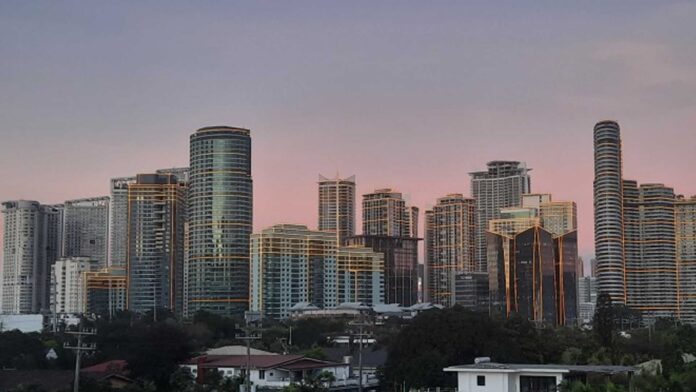United States-based S&P Global Ratings on Wednesday affirmed the Philippines’ ‘BBB+’ long-term and ‘A-2’ short-term sovereign credit ratings, citing the country’s sustained economic recovery due to the government’s ongoing efforts to address infrastructure gaps and improvements in the business climate.
“The stable outlook reflects our expectation that the Philippine economy will maintain healthy growth rates and the fiscal performance will materially improve over the next 24 months,” S&P Global said in a report.
According to S&P, the country’s gross domestic product (GDP) is projected to grow by 5.4 percent this year, reflecting the impact of high base and the slower growth of the world economy.
The report also showed that Philippine economic growth is projected to accelerate to 5.9 percent in 2024, 6.2 percent in 2025 and 6.4 percent in 2025.
The credit rater expects that the Philippines’ economic growth will remain well above the average among its peers “due to the government’s ongoing efforts to address infrastructure gaps and improvements in the business climate through regulatory and tax reforms, which will further support expansion in economic productivity.”
It also recognized the government’s efforts to prioritize infrastructure development and fiscal measures and cited crucial reforms such as the public-private partnership (PPP) framework and the Corporate Recovery and Tax Incentives for Enterprises (CREATE) Act.
“The Philippine government has generally enacted effective and prudent fiscal policies over the past decade. Improvements to the quality of expenditure, manageable fiscal deficits, and low general government indebtedness testify to this. This track record of sustainable public finances helped the government accumulate fiscal resources to respond to the pandemic,” the report said.
It also underscored the importance of tax reforms in ensuring that public finances remain sustainable, while infrastructure and social needs are addressed.
S&P said the general government (GG) deficit is estimated to decline and to settle at 3.8 percent of GDP in 2023, from 4.4 percent in 2022.
“We believe the fiscal shortfall will continue to narrow over the coming years while the economy regains its footing and the government scales back stimulus measures. We expect the medium-term fiscal framework (MTFF) revealed by the Marcos administration last year to guide the consolidation process,” it said.
The report also highlighted the country’s solid household and corporate balance sheets and sizable remittance inflows, and expects foreign direct investments to remain stable this year.
However, S&P said it may lower the country’s ratings if economic recovery falters, if general government debt exceeds 4 percent of GDP, if net debt stock exceeds 60 percent of GDP or if interest payments exceed 15 percent of revenue on a sustained basis.
“We may raise the ratings if the economy recovers much faster than we expect, and the government achieves more rapid fiscal consolidation,” it said.
“We may also raise the ratings if we assess a significant improvement in institutional settings that leads to a material enhancement in the Philippines’ credit metrics,” it added.
In a separate statement, Finance Secretary Benjamin Diokno said the administration is committed to pursuing the path of fiscal consolidation and introducing sound policies and structural reforms to strengthen the country’s fiscal and economic position to maintain if not improve this favorable assessment.
“In a sea of downgrades, the international rating agencies continue to affirm their confidence in the Philippine economy’s macroeconomic fundamentals. We continue to pursue the Road to A under President Marcos Jr.’s administration,” Diokno said. (PNA)






